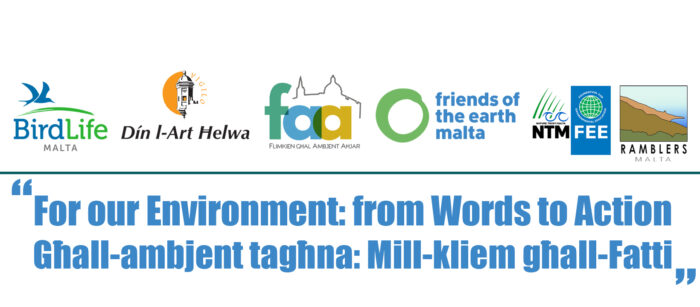9 Key Environmental Demands – 2022 Elections
Dear General Election 2022 Candidate, dear Political Party of Malta, As a united front of environmental NGOs active in protecting the quality of life of all residents of the Maltese Islands, we address you today with 9 Key Environmental Demands, which need to be addressed in your political party’s Election Manifesto 2022. We request your sincere feedback in the ongoing pre-election campaign. In view of the rampant degradation of our natural and built environments we state For our Environment: from Words to Action.
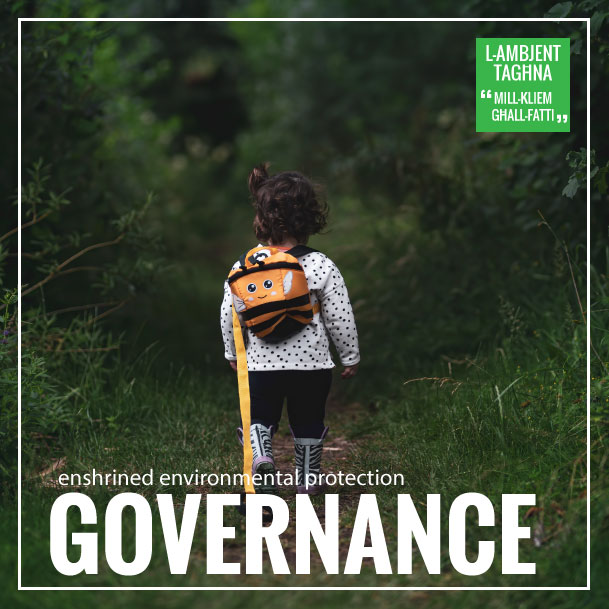
#1 Governance
To entrench environmental protection, guardianship and the environmental rights of future generations into the Maltese Constitution. This constitutional right should allow all citizens the right to challenge the state or any public or private entity for enacting, implementing, enforcing or lack of it, laws, projects and actions that threaten this very clause.
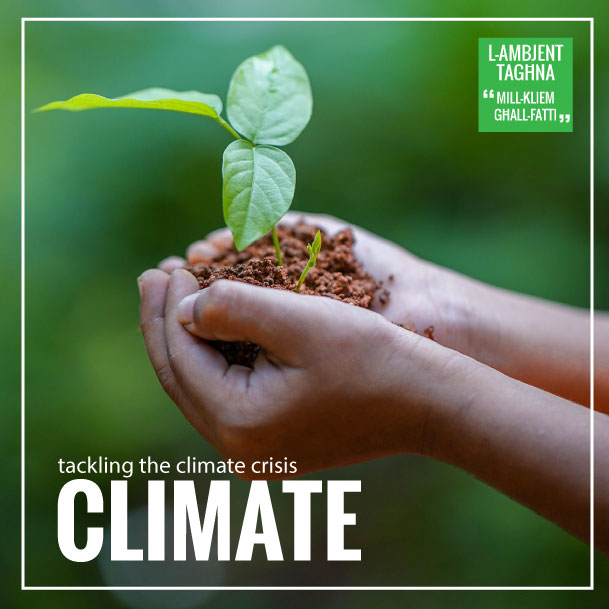
#2 Climate Change
To truly prioritise the climate crisis as the greatest threat to humankind and the planet that requires bold and immediate actions across all levels of government and society. This includes immediately halting investments in fossil fuel infrastructure and investing in renewable energy sources to achieve the EU 2030 target of 30%, as well as creating a fossil fuel free vision for Malta, including a plan for the clean energy transition.
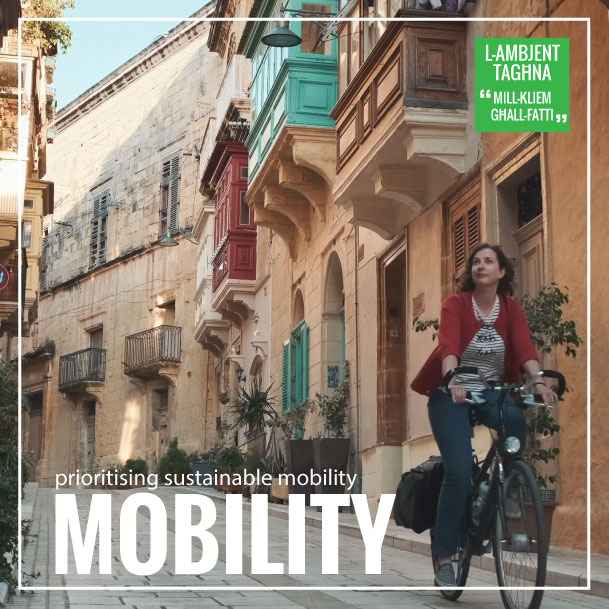
#3 Sustainable Mobility
To prioritise public and active transport modes, by investing in direct, frequent and reliable public transport connections and safe, direct and connected infrastructure for walking and cycling, while creating pedestrian areas in village and town centres. The priority should first and foremost be on reducing the number of cars and journeys made by car, instead of focusing only on the transition to electric vehicles.
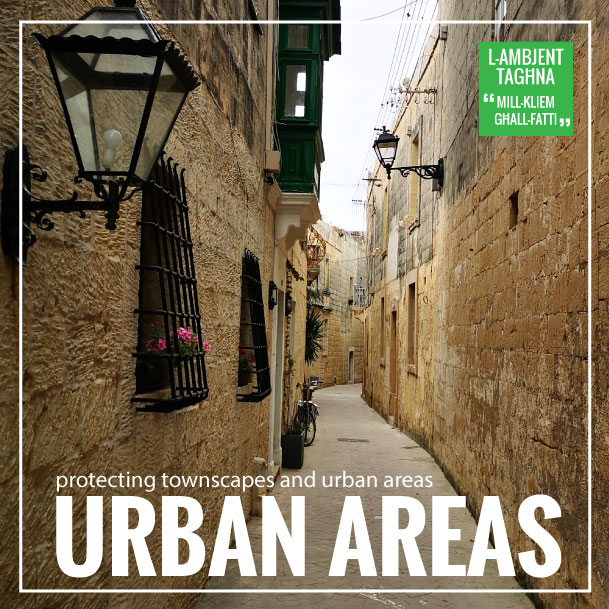
#4 Urban Development
To reform the PA planning board to ensure political independence and seek representation based on competence. The Superintendence of Cultural Heritage and ERA should be given veto power in PA application decisions. The following policies (SPED, DC2015, Rural Policy Design Guidelines, Tree Protection Act) should be urgently revised to better protect townscapes and rural areas.
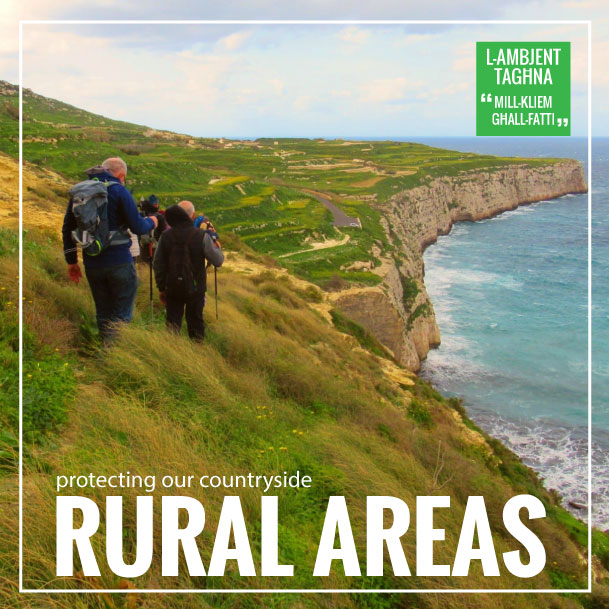
#5 Rural Policy
To conclude and publish the 2020 Draft Rural Policy and Design Guidance, which has been in limbo since August 2020.
To protect public right of way on footpaths that have been open historically, while respecting the rights of land owners or tenants and creating a database and map with information on land ownership and publicly accessible roads and footpaths.
To include the already proposed public domain sites (under the 2016 Public Domain Act), which, despite extensive public consultation and press lobbying (dating back to 2017), have not been granted protection so far.
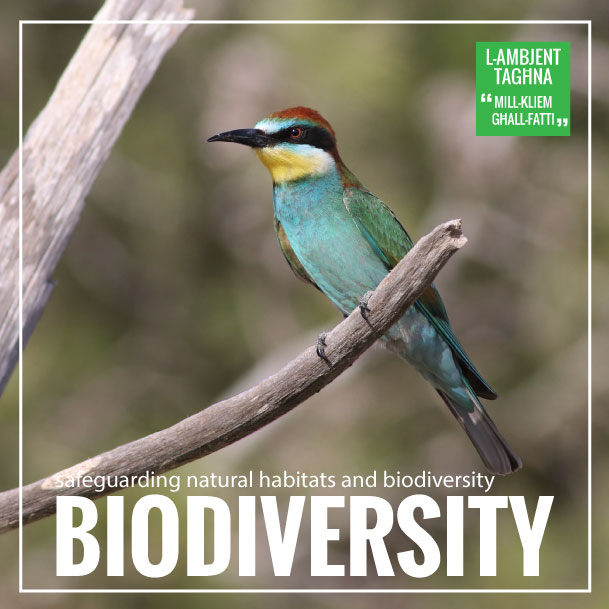
#6 Habitat & Biodiversity
To increase the proportion of land enjoying full environmental protection and extend the footprint of existing nature reserves plus establishing new areas for full nature conservation.
To strengthen the legal basis for nature protection by ensuring that ERA has full legal oversight on all environmental legislation and international obligations including bird protection.
To holistically and immediately address the spread of alien species before they further displace indigenous and endemic species and habitats forever.
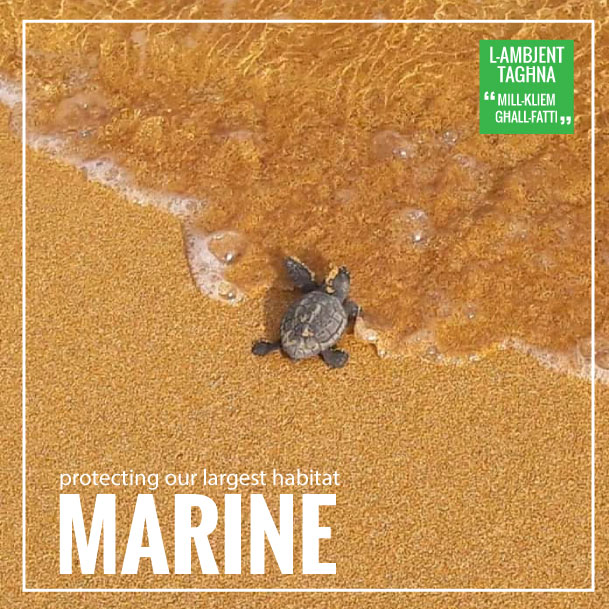
#7 Marine Areas
To recognise that Malta’s largest habitat is the sea. This requires the authorities to provide the resources to adequately enforce and protect our marine environment against overfishing and illegal fishing activities, anchoring and dumping. The impacts and consequences to the marine habitat and its biodiversity needs to be prioritised in any marine-based infrastructure and land reclamation projects.
To safeguard our marine habitats and resources by promoting sustainable use and regulation. This should include regulating and controlling the impacts from maritime vessels on air and water including establishing the Mediterranean Basin as an Emission Control Area for cruise ships.
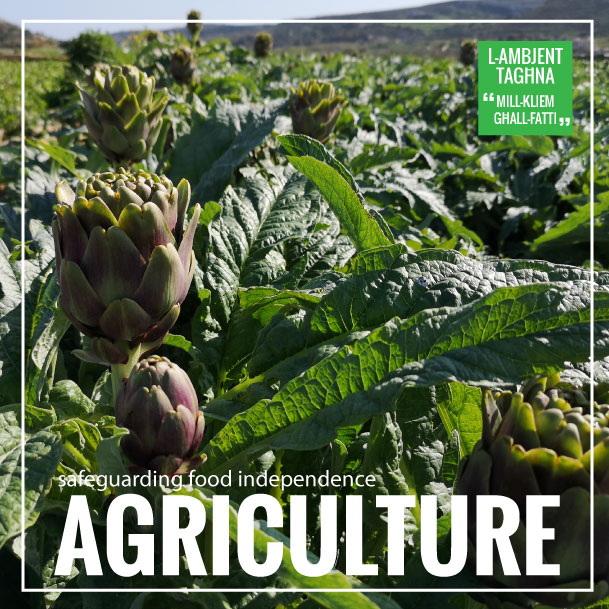
#8 Agriculture & Food Systems
To support food independence by creating mechanisms to ensure that agricultural land remains in the hands of farmers and that they are not evicted from their lands. This should include creating a framework that guarantees that agricultural land, including all government-owned land, is only used for agricultural purposes.
To increase agro-ecological farming practices, targeting that 25% of agricultural land becomes organic by 2030 and additionally reduce the use of synthetic pesticides by 80% by 2030.
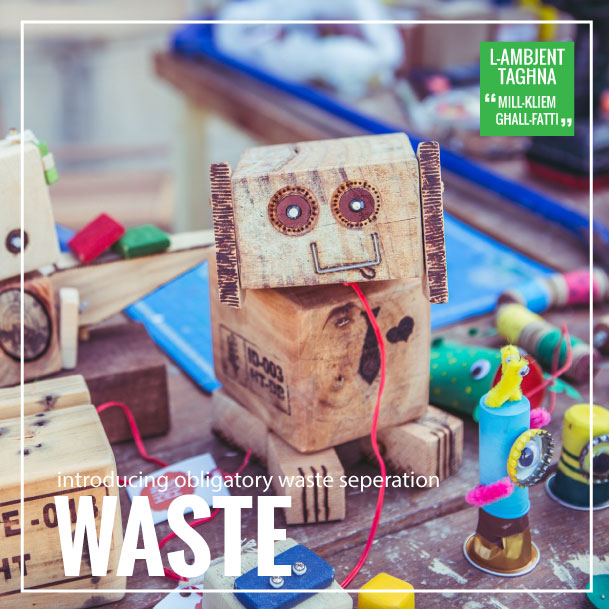
#9 Waste Management
To tackle the issue of food waste. This should include making the necessary legislative changes along with incentives for supermarkets and food importers and distributors to minimise food waste and to channel food that would end up in the waste stream to food banks.
To implement at the earliest an obligatory waste separation regime for domestic and commercial waste, and implement a strategy to minimise waste packaging. This should be supported by strengthened enforcement of existing rules.
To create mechanisms that encourage a cut-back of construction and development waste at source. Incentives should be provided to the construction industry for reusing old stone, and making provisions for recycling and reusing other construction materials through the use of a central storage facility.
The demands have been put together by BirdLife Malta, Din l-Art Ħelwa, Flimkien Għal Ambjent Aħjar, Friends of the Earth Malta, Nature Trust-FEE Malta, Ramblers Association of Malta.
And endorsed by: Extinction Rebellion Malta, Għawdix, Moviment Graffitti, Rota, The ‘Grow 10 Trees’ Project, Wirt Għawdex, Żminijietna – Voice of the Left
Read the Maltese version of the press release here.
